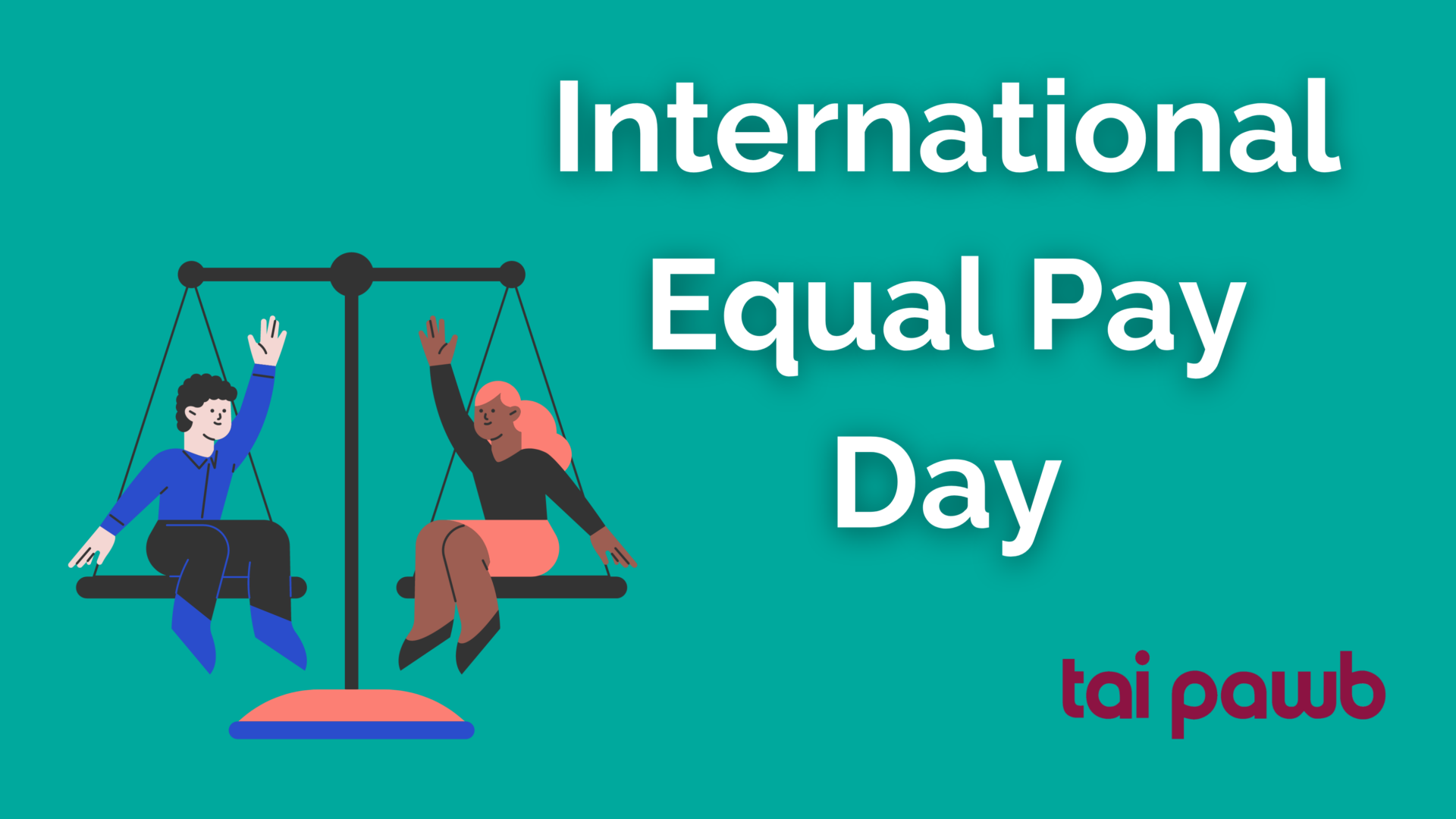Equal Pay, the Gender Pay Gap, and Housing

Today is Equal Pay Day. Set up in 1996 as a public awareness campaign, it aimed to highlight that women’s salaries in the US averaged just 73.8% of men’s at that time. This was even more pronounced for Black women.
So, what is Equal Pay?
By law, people must get equal pay for doing ‘equal work’ regardless of gender. This is work that equal pay law classes as the same, similar, equivalent or of equal value. In the UK, this became law in 1970.
In 2024, there was a landmark equal pay win for thousands of workers against retailer Next: https://bit.ly/3Xti1JJ
What’s the difference between Equal Pay and the gender pay gap?
The gender pay gap is an equality measure that shows the difference in average earnings between women and men. In Wales, this gap is currently at 11.8% (based on a median hourly basis for all jobs – including both full and part time jobs, but excluding overtime).
How does this happen?
Women are statistically more likely to work part-time in paid roles due to childcare and other responsibilities. Women are also more likely to take career breaks due to caring responsibilities.
As an overall picture, women are more likely to be in roles that constitute the ‘five Cs’ of caring, cleaning, catering, clerical and cashiering. These roles are often on the lower end of the pay scale.
Women also hold fewer executive positions, making up only 34% of those roles across Europe in 2020. Women across Europe are also paid less on average for management roles. This could reflect the type of sector and/or size of organisations, or the levels or departments of the management role, that women are in.
So, what about housing?
Back in 2018, Tai Pawb commissioned a gender pay gap consultation in the social housing sector in Wales, which showed that the gender pay gap was lower than the national average. However, there were still notable trends, such as:
- Women tend to cluster in care roles in the lower quartile of pay.
- Some organisations recognised the under-representation of women in senior roles or in certain quartiles of their organisation.
We also conducted a comparative report a year later, which found that the gender pay gap had dropped by 4.6%.
So, how can the gender pay gap be improved?
Despite the positive news about the housing sector, there is still more work to be done.
Read our report:
Our Gender Pay Gap reportin 2018 outlined some key principles and challenges that can still be used as a guide for how to improve in the future.
These include:
- Data
- Conducting an Equal Pay Audit
- Consultation and engagement
- Training and awareness
- Family friendly policies
- Career progression
- Positive Action
- Communication
Consider intersectionality:
Current gender pay gap reporting does not mandate any measure of intersectionality; however, some companies are choosing to report on ethnicity pay gaps.
Factors such as race, disability, sexual orientation, age, employment status, faith, and, location also affect someone’s pay. These elements can be cumulative, and it is crucial to understand how they interact with gender and each other.
There are differences in pay between men and women of different ethnicities which are not broken down by current gender pay gap reporting, and a disability pay gap that the TUC reports to be over 17% across the UK.
It is important to understand how all of these factors affect pay and prospects.
Read up on good practice:
Hafod has closed its gender pay gap through a number of means, including skills development of staff, improving recruitment practices, employee engagement, and more: https://www.hafod.org.uk/downloads/file/104/gender-pay-gap-report-2023
Dr Alison Parken, Honorary Senior Research Fellow at Cardiff University, shares her reflections on the gender pay gap package she led in North Wales for Tai Pawb members: https://www.taipawb.org/blog-story/tackling-gender-pay-gaps/
Debbie Green, CEO of Coastal Housing, talks about Coastal Housing’s gender pay gap success: https://www.taipawb.org/blog-story/coastals-gender-pay-journey/
“To sum up, getting gender pay right, in the context of structural issues in wider society, is a journey where we are constantly learning, but one that we must get right, as the benefits are not just about achieving equity and fairness for staff, but are also reaped by Coastal as an employer.”
How can Tai Pawb help?
Consultation/workshops from Tai Pawb:
“Gender Pay Gap – From Evidence to Action”
Tai Pawb’s exciting member-only gender pay gap workshop programme, led by an expert in the field, will help you use your organisation’s employment and pay data to understand what is driving gender pay gaps, and discuss the long-term changes needed to prevent pay disparities being reproduced in each generation.
https://www.taipawb.org/wp-content/uploads/2021/02/Gender-Pay-Gap-Evidence-to-Action-UPDATED.pdf
Further training:
Tai Pawb offers a range of training courses to support your work on addressing the gender pay gap, including Unconscious Bias, Equality Impact Assessments, Diversity Champions and general Equality and Diversity training. We can also develop bespoke courses to meet your specific needs.
For more information or to book, contact Tai Pawb on info@taipawb.org